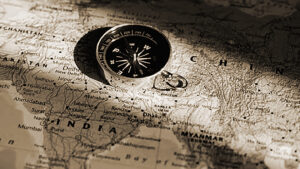Junk food addiction: How it works
December 6, 2023: Blind fanaticism over ultra-processed foods (UPFs) has literally exploded in the country in recent decades, especially since Western industrial-food companies started setting up shop here. Alongside an escalating junk food addiction, the UPF industry in Bharat is growing really, really fast. It shows how the Big Food industry, or the factory-food sector, is increasingly taking control of what we eat every day.
The secret behind the growth of the ultra-processed food industry, and the subsequent rise in junk food addiction, is nowadays being debated more than ever before. A new report has claimed that ‘addictive substances’ are added to the processed edible products, turning hungry people and food junkies into a highly lucrative market.
If you crave for fizzy drinks with your everyday meal, it means you are addicted to it. You are caught in a web of junk food addiction carefully laid out for you. Same goes with burgers and fries at popular, Western-origin fast-food chains.
If your children are crazy about potato chips, sugary drinks, pizzas, and burgers, it means you are giving them addictive substances every day. It’s exactly like giving your children cigarettes and booze. Would you really offer your kids tobacco and hard drinks on a daily basis?
So, what has this explosion of ultra-processed foods given Bharat? By resulting in junk food addiction, UPFs have given Indians a massive and undeclared epidemic – an epidemic of diabetes, obesity, cholesterol, thyroid issues, high blood pressure, heart problems, kidney problems, and other lifelong diseases. This report is not about what you eat; it’s about what is eating you.
Global study on UPFs
Let’s first understand why ultra-processed junk food is as addictive as smoking and drinking. Factory-processed junk food gives us lifelong diseases. But still, we never think about kicking it out of our lives. Why? Because we suffer from what is called junk food addiction. That’s precisely what a global study seems to have found.
A research was recently published in the British Medical Journal (BMJ), titled: ‘Social, clinical, and policy implications of ultra-processed food addiction’. It claims that ultra-processed food contains addictive substances. That’s why we can’t give it up. And that’s why the unstoppable following and sharp growth of the ultra-processed Big Food industry, and their high profit margins.
The numbers are shocking and alarming. At least 14% of adults and about 12% of children in the world have UPF craving, simply called junk food addiction. These figures match the levels of two popular addiction habits: drinking and smoking. Around 14% of adults are addicted to alcohol and almost 18% are addicted to tobacco products.
Researchers compiled the report based on 281 studies that were done in 36 countries. It has particularly disturbing news about our kids. One in eight children are in the grip of junk food addiction – UPFs, to be precise. Streets, shops, bazaars, ‘kirana’ stores and food-delivery services deal in tonnes of ultra-processed junk food. Whether you’re at home, at your workplace, travelling in the mountains, taking a flight, touring by train, at a public gathering, in a fast-food joint, at a shopping mall, or on a foreign trip – UPFs are on sale everywhere.
In the the study published in BMJ, the authors wrote: “There is converging and consistent support for the validity and clinical relevance of food addiction; what remains a more open question is the types of foods that are addictive. Despite the uncertainty, classifying foods as addictive could stimulate research and shift attitudes to regulation.”
Junk food addiction: The suspects
The outbreak of UPFs, and the subsequent highly processed junk food addiction, is a wake-up call for all Indian parents, especially those in the cities. UPFs cover a large portion of our daily intake. Cold drinks, snacks in packets, frozen meat, stylised noodles and pastas, ice-creams, processed sweets, packaged biscuits and cookies, cakes and pastries, packaged taste-makers, pizzas, sausages, burgers, nuggets, bottled sauces, factory sugar, stylised salts, processed spices and salts, factory-processed edible or vegetable oil, refined and double-refined cooking oil, packaged butter and margarine, chocolates, toffees, candies, syrups, packaged toppings, stylised breads, hard drinks – well, they all fall in the category of ultra-processed foods.
As the saying goes in activism circles: if it comes with a bar code, it’s not food; it’s an industrial product marketed as food!
It is also important for all of us to know what kind of food is not considered UPF. The answer is, anything that is totally unprocessed or only slightly processed; and food that is largely fresh. Fruits, vegetables, fresh juices, unprocessed milk, home-made yoghurt, home-made butter and ghee, fresh meat and fish, grains, eggs, unprocessed flour, dry fruits, nuts and seeds, unprocessed spices and herbs, unprocessed pasta and noodles, and so on.
So, what is the essential difference between UPFs and less processed food? It’s the use or addition of multiple industrial substances and artificial additives to refined carbs and fats. This is what possibly makes ultra-processed food so highly addictive. The situation is critical for Indians, especially those leading urban lifestyles. Over the next 10 years, UPFs are likely to grow faster than the country’s GDP growth. So, it’s not just a matter of personal health; it’s a national concern.
An Indian advocacy group called NAPi (Nutrition Advocacy in Public Interest – India) is working hard to raise awareness about excess UPF consumption, and to coax policymakers to take action. Firefighting is underway all over the world. Outside Bharat, writer and campaigner Chris van Tulleken’s book Ultra-Processed People, too, has served as a warning for the public, among lots of other works.
Mechanics of junk food addiction
Now, let’s dig deep into the scientific details of the BMJ report. The addictive power of UPF comes from a combination of two things: refined carbohydrates and fats. This deadly combination hits our brain’s reward system with full force. It creates an addictive feeling that’s hard to resist. It doesn’t stop there — additives, too, play a crucial role.
Flavours, textures, and other modifications to the industrial food have an impact on the taste. The taste is designed to keep us wanting more and more of it. It turns into a harmful cycle from which the people can’t escape.
UPF addiction also disturbs the socioeconomic fabric of a country. In wealthy countries, there is a very uneven distribution of food options among the rich and poor. The same story is now unfolding across the Indian population. Excessively processed junk food is cheaper than healthy food in the open market. Naturally, cheap UPFs are more popular among people living in poor neighborhoods. That’s a sad truth.
The poorer you are, the more you are forced to rely on ultra-processed food because it is cheaper than healthy food. And therefore, poorer populations are eating more of the ultra-processed junk food. This is further fuelled by processed junk food addiction. It’s a classic example of a vicious cycle.
So, where do we go from here if we want to end junk food addiction and dangerous eating habits? Should we simply ban junk food companies? Most experts feel an outright crackdown on the industry can’t be enforced legally and practically. That’s because the companies will ask the authorities to first scientifically prove that their food is addictive.
A BMJ study paper is a good benchmark, as they would argue in the courts, but it’s not definitive enough to enforce a blanket ban on UPFs and UPF advertising. Many other studies over a longer period of time would be required to prove there’s a conclusive link between what UPF companies sell and the trend of processed junk food addiction, the UPF companies would argue.
The way out
So, what is the way out? There are some middle paths that can be taken. Displaying nutrition labels prominently on the front face of UPF packets and boxes are a workable starting point, as suggested by UPF-awareness campaigner Dr. Arun Gupta, who is convenor of India-based advocacy group, NAPi. It can have a limited impact in Bharat, where a large number of buyers are gullible and usually don’t look at food packets with critical eyes. But doing something is certainly better than doing nothing, Dr. Gupta argues.
Countries such as Chile and Mexico are resounding examples. They are part of about 20 countries that have strictly implemented the use of prominent nutrition labels for UPFs. In fact, more than 100 countries have various protracted policies in place, such as high taxes, called ‘sin taxes’, on sugary drinks, and marketing regulations on UPFs.
In fact, NAPi convenor Dr. Gupta explains that even though UPF makers have a tendency to pass on the taxes to the buyers, it will still eventually reduce the overall consumption of ultra-processed foods to some extent, as we saw in the state of Kerala in recent times.
Also, processed junk food addiction needs to be recognised as an official diagnosis, insist the authors of the study that came out in the BMJ.
Junk food takes up more than 50% of total daily energy consumption in some wealthy countries, such as Canada, Australia, Britain, and the US. It is no secret that the Big Food industry literally controls populations in the Western countries. No wonder, processed junk food addiction is an unacknowledged problem across the West.
Bharat is likely to join them soon, given the rapid growth in packaged food demand and expanding Western-owned fast-food chains in cities and towns. Globally, between 1990 and 2010, the consumption of unhealthy food items, accompanied by junk food addiction, has simply skyrocketed. And more and more people have consequently fallen sick, turning to the Big Pharma industry.
So, it’s time to trash the junk, and break free from processed junk food addiction. At the end of the day, what we eat is at the root of all our diseases.
So, here’s the deal – let’s ignore addictive snacks, especially stuff that comes in shiny packets, are endorsed by celebs, and carry bar codes. Let’s embrace real food, shake of processed junk food addiction, and redefine what we eat. Treat addictive food as a food invasion on our bodies. More and more children will continue falling prey to ultra-processed food if we don’t rise up against this ‘food invasion’.
As adults, we need to realise that it’s not just about what’s on our plate; it’s about the legacy and lessons we are leaving for the next generations to build upon. If we don’t break the cycle now, we will reward our children with lifestyle diseases. Do we really want a future where the country is full of obese, unwell, and unfit people, driven by junk food addiction?
Let’s build a nation where food plays the role of fuelling us, not trapping us. If your favourite gadgets are smart, why is your favourite food not so? Think about it. Don’t let food empires control you. Eat well, eat natural, and eat smart.
COPYRIGHT & REPUBLISHING TERMS:
All rights to this content are reserved with Empire Diaries. If you want to republish this content in any form, in part or in full, please contact us at writetoempirediaries@gmail.com.







